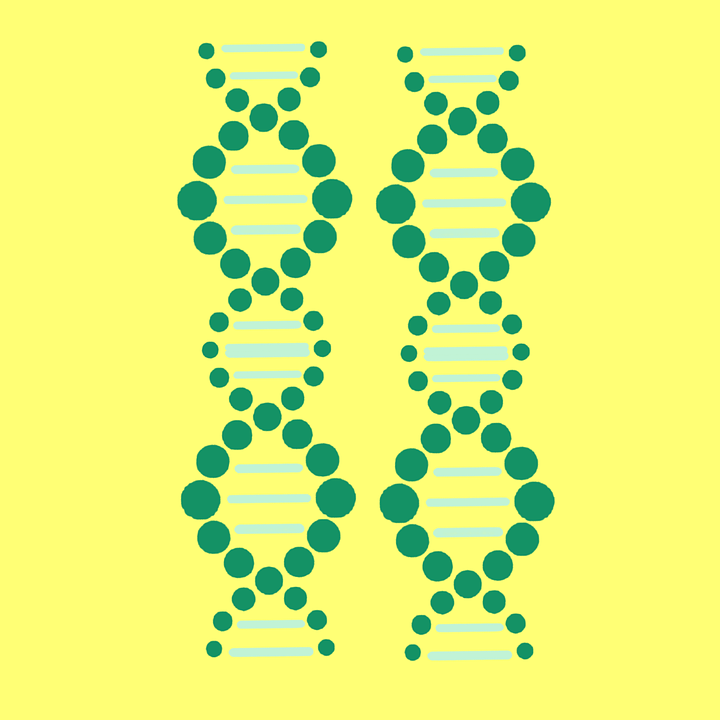Are Our Genes Really Our Fate? DNA’s Visual Culture and the Construction of Genetic Truth
By Kathleen Pierce,
Nursing Clio
| 04. 24. 2018
The direct-to-consumer genetic testing company 23andme has recently been described by journalist Erika Check Hayden as a “unicorn.” For Hayden, this Silicon Valley idiom describes the company’s one billion dollar valuation while also capturing the rare opportunity it affords to scientists: its two million customers make up the largest available pool of gene-linked health data. The home testing kit’s packaging does little to disrupt visual continuities with popular imaginings of unicorns: a matte, velvety white box has been striped along one edge with rainbow chromosomal pairs, their neat, parallel lines forming a multihued mane.
23andme’s use of saturated fields of color and streamlined, graphic shapes may seem part and parcel of 21st-century advertising and design trends favoring a minimalist aesthetic, sleek shapes, and bright pops of color. However, this visual style has long played a role in representations of genetic material in popular visual culture and scientific literature from the 1950s to today.
These images, particularly their use of simplified shapes and solid colors, help shape popular conceptions of ancestry, genetic disease, and hereditary traits as fixed and...
Related Articles
By Evelina Johansson Wilén, Jacobin | 01.18.2026
In her book The Argonauts, Maggie Nelson describes pregnancy as an experience marked by a peculiar duality. On the one hand, it is deeply transformative, bodily alien, sometimes almost incomprehensible to the person undergoing it. On the other hand...
By Josie Ensor, The Times | 12.09.2025
A fertility start-up that promises to screen embryos to give would-be parents their “best baby” has come under fire for a “misuse of science”.
Nucleus Genomics describes its mission as “IVF for genetic optimisation”, offering advanced embryo testing that allows...
By Grace Won, KQED Forum [with CGS' Katie Hasson] | 12.02.2025
In the U.S., it’s illegal to edit genes in human embryos with the intention of creating a genetically engineered baby. But according to the Wall Street Journal, Bay Area startups are focused on just that. It wouldn’t be the first...
Several recent Biopolitical Times posts (1, 2, 3, 4) have called attention to the alarmingly rapid commercialization of “designer baby” technologies: polygenic embryo screening (especially its use to purportedly screen for traits like intelligence), in vitro gametogenesis (lab-made eggs and sperm), and heritable genome editing (also termed embryo editing or reproductive gene editing). Those three, together with artificial wombs, have been dubbed the “Gattaca stack” by Brian Armstrong, CEO of the cryptocurrency company...




